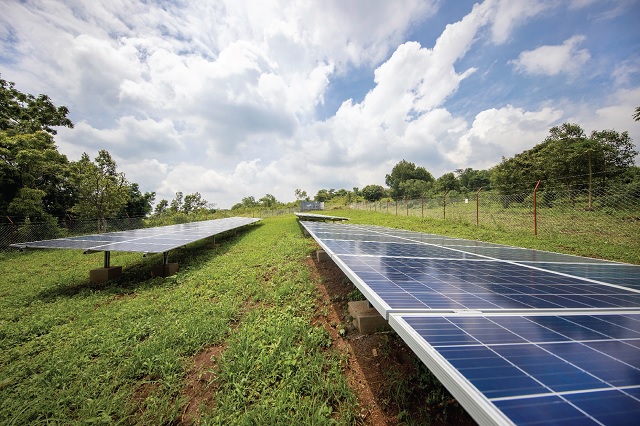
Kampala, Uganda | THE INDEPENDENT | A coalition of global energy sector leaders have launched an integrated energy pilot project dubbed ‘The Utilities 2.0 Twaake’ in Uganda with the aim of lighting up homes, businesses.
Coordinated by Power for All and funded by The Rockefeller Foundation, the project unites Umeme Ltd, the centralized power utility company and several leading Uganda-based renewable energy companies (DREs) to provide affordable, reliable, and clean power for all in what has been described as the utilities of the future.
In a country with only 28% of the population accessing electricity by the central grid, it would take over 10 million customers for Uganda to achieve universal access according to the World Bank recent studies.
With the average cost of grid extension connection at $1,400, if grid extension is the sole method of service provision, the required investment would likely be in the range of USD $7billion, nearly a fifth of Uganda’s current annual GDP estimated at $35 million.
The Utilities 2.0 Twaake pilot is designed to at least halve this cost by relying on integrated energy.
Integrated energy combines centralized and decentralized technology (including solar home systems, mini-grids, grid, and smart grid systems) into an intelligent and interactive energy network that can deliver customer-centric, clean energy solutions to end energy poverty at the lowest cost and transform billions of lives faster than isolated approaches.
Through this integration, Uganda’s energy customers will derive more benefit for each kilowatt consumed, creating more opportunities for business, education, health, safety and overall quality of life.
The integrated energy pilot is deployed across two sites: Nyenje (grid) and Kiwumu (non-grid DRE site).
The grid connected Nyenje has been operational since July 2020 with over 26percent of businesses to date receiving income generating assets for the purpose of productive use.
In Kiwumu, the pilot has deployed a 40kWp mini grid in Kiwumu, Mukono district in Uganda to power 300 households and 60 local businesses.
Over 50percent of the businesses in Kiwumu will receive asset financing to assist businesses with productive use. By helping customers move beyond access with appliance financing and financial literacy, the pilot project is expected to deliver jobs and improve incomes across both villages, according to Kristina Skierka, Power for All CEO.
Results of the pilot project will inform future plans which should align with government’s development agenda.
 The Independent Uganda: You get the Truth we Pay the Price
The Independent Uganda: You get the Truth we Pay the Price






Four years on, the results from Uganda’s trailblazing Utilities 2.0 pilot are in—and they’re remarkable.
What began as an ambitious experiment in integrated energy is now a proven, scalable model that’s redefining what’s possible in the push for universal access:
3.5x faster electrification: 370 households—92% of all homes—connected within weeks, thanks to system-level collaboration.
30x higher electricity use: Combined grid and mini-grid services delivered 2,765 kWh/month—equivalent to six years of usage under the traditional model.
64% cheaper connections & 56% lower losses: Connection costs fell from over $500 to $186 per household; distribution losses were halved via smart metering and bulk financing.
$0.40/kWh today, on a path to $0.20: A new cost-reflective tariff framework that boosts utility revenues, attracts private capital, and increases customer lifetime value fourfold.
The ‘Utilities 2.0’ in Twaake is more than a pilot—it’s a replicable, investment-ready blueprint for reaching the billion people still without power, faster and more affordably.
Scaling this approach across Uganda could enable 1.5 million new electricity connections by 2030—14% of the national target—while adding 70MW of renewable energy capacity. That means 30% lower investment costs, 64% cheaper household connections, and a fifteenfold expansion of the mini-grid market.
For a country with over 28 million people still unconnected, these results mark a real leap forward.